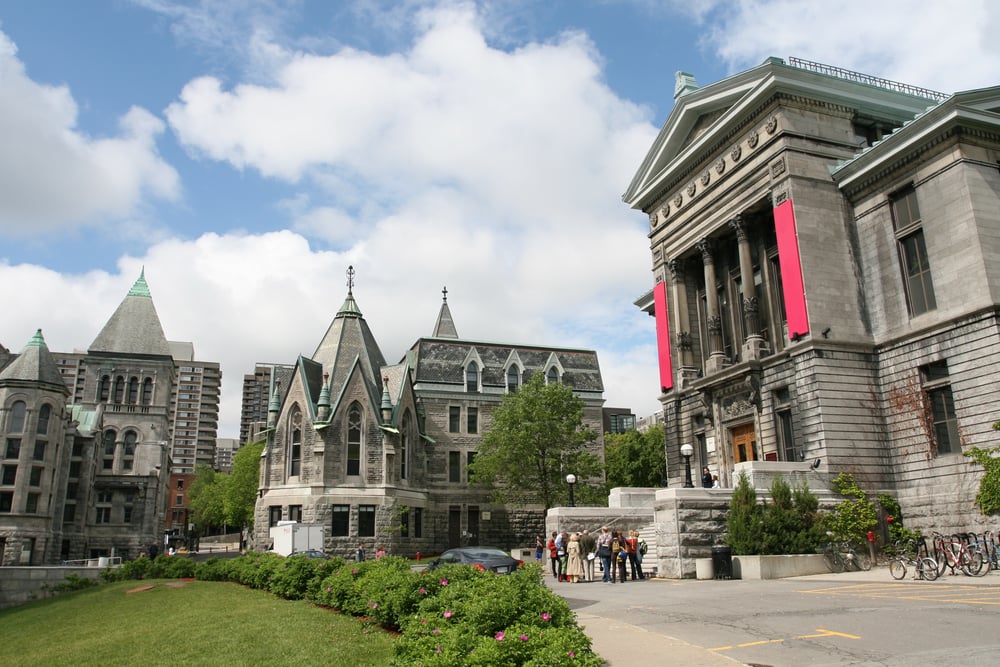In a precedent-setting ruling, the student government at McGill University in Montreal found that anti-Israel boycotts violate its own anti-discrimination policies.
The Judicial Board of the Student Society of McGill University (SSMU) ruled last week that “resolutions affirming the Boycott, Divestment and Sanctions (BDS) campaign against Israel violate the Constitution and Equity Policy of its student government,” wrote Andrew Pessin, a philosophy professor at Connecticut College. BDS resolutions “take an authoritative, direct, and unambiguous stance” against a specific nation, undermining SSMU’s mission of facilitating student interaction without discrimination on the basis of personal characteristics including race, religion, and national origin, the Judicial Board noted.
By picking a side in a conflict, the student government would not be encouraging interactions, but rather “[championing] one cause over another,” the board added. It would therefore be “absurd” for the student government to claim that it is “representing Israeli members as favorably as other nationals” if it considered BDS resolutions.
“McGill is first and foremost a university, a place of knowledge and intellectual growth — a fact that is often forgotten….[Our student government] cannot be the venue for a proxy war,” the board continued. “The reality remains that if SSMU were to adopt the BDS Motion, it would adopt an anti-Israel platform. Israeli students would be placed at a disadvantage – SSMU, despite being their representative, would be openly hostile towards their country. This places them at a structural disadvantage vis-à-vis others and denies them access to the ‘safer spaces’ that SSMU holds so dear.”
Pessin, who lauded the neutrality championed in the Judicial Board’s ruling, later explained why it is so “often forgotten.”
While scholars and academic institutions understand that most issues have at least two competing narratives, an activist is motivated by winning, in such a way that can involve silencing the other side. Pessin argued that when a student government picks one side in a conflict, it “abandons its role in the scholarly mission of the institution” in favor of activism. The student government therefore “becomes the tyrannical majority instead,” Pessin wrote.
Not allowing student governments to entertain BDS motions means preventing one of the institutions of the academy from limiting free inquiry, which BDS inherently infringes on.
But that most noble goal of intellectual liberty and diversity can be achieved only when the organs of the institution itself — the university, the faculty governing body, graduate student unions, the student government — are above the fray. To maximize the freedom of inquiry and speech of their members, they must not be hijacked for the political agendas even of the majority of their members.
Pessin described this “as the moment when the activism begotten by scholarship overthrows the scholarship,” and “the moment when the university launches its own destruction.” Thus, the decision of SSMU’s Judicial Board is significant in that “it is about defending the university.”
Pessin’s observations about the McGill Judicial Board’s ruling echos sentiments expressed in other recent reports on anti-Israel boycotts in academia. After the American Historical Association overwhelmingly voted down an anti-Israel resolution in January of this year, Dr. Roger Horowitz, a director at the Hagley Museum and Library, said that the resolution erred by “singling out Israel and not providing a proper frame for understanding the crisis in the Middle East and the crisis of opportunity for people in these countries. … It’s just intellectually bankrupt to say that this will be solved by a resolution criticizing Israel.”
Ben Cohen, senior editor of The Tower, wrote in April about a lawsuit brought forth by members of the American Studies Association (ASA) over the group’s boycott of Israel. Cohen observed that the ASA’s boycott violates the principles set forth in its own charter, which restricts the group’s activities “to the universe of American Studies, which like any other discipline requires academic freedom—and not bigoted, self-imposed academic restraints—in order to flourish.”
By: TheTower.org
Do You Love Israel? Make a Donation - Show Your Support!
Donate to vital charities that help protect Israeli citizens and inspire millions around the world to support Israel too!
Now more than ever, Israel needs your help to fight and win the war -- including on the battlefield of public opinion.
Antisemitism, anti-Israel bias and boycotts are out of control. Israel's enemies are inciting terror and violence against innocent Israelis and Jews around the world. Help us fight back!
